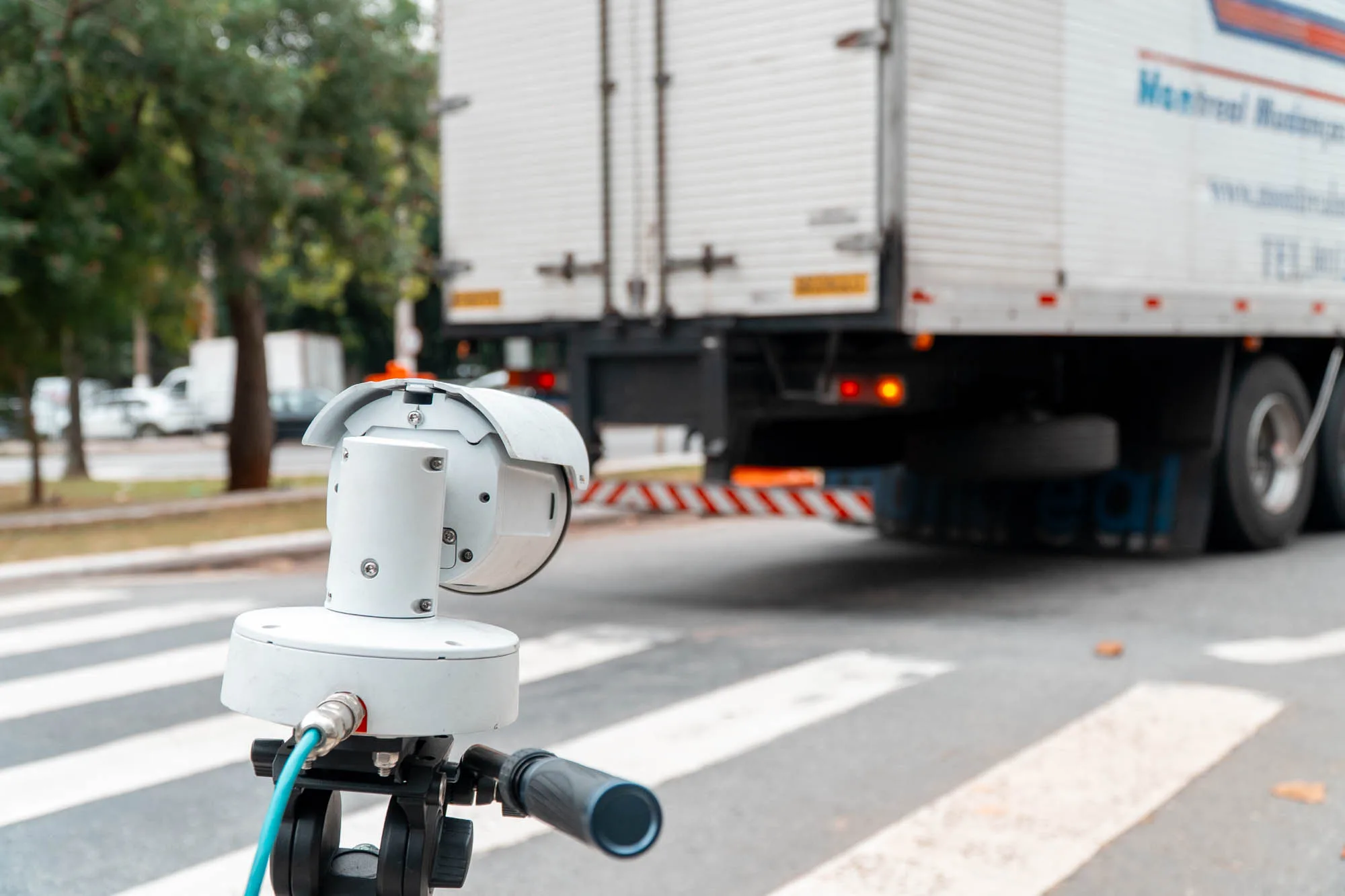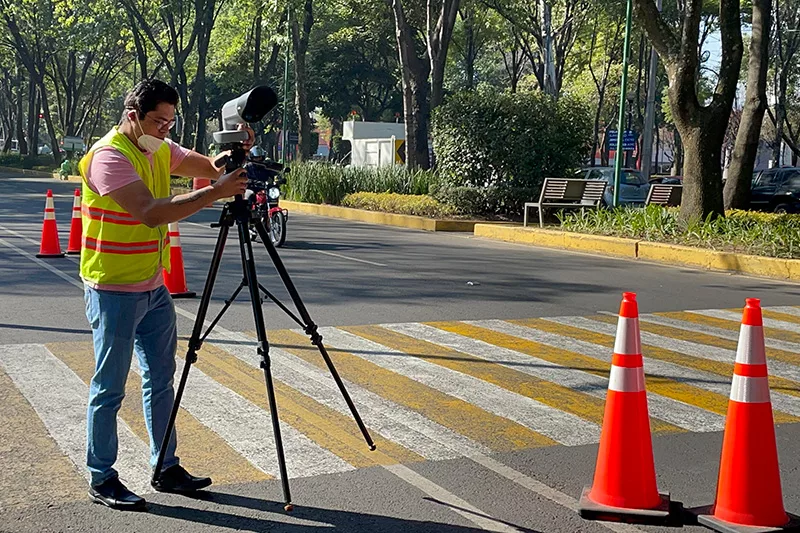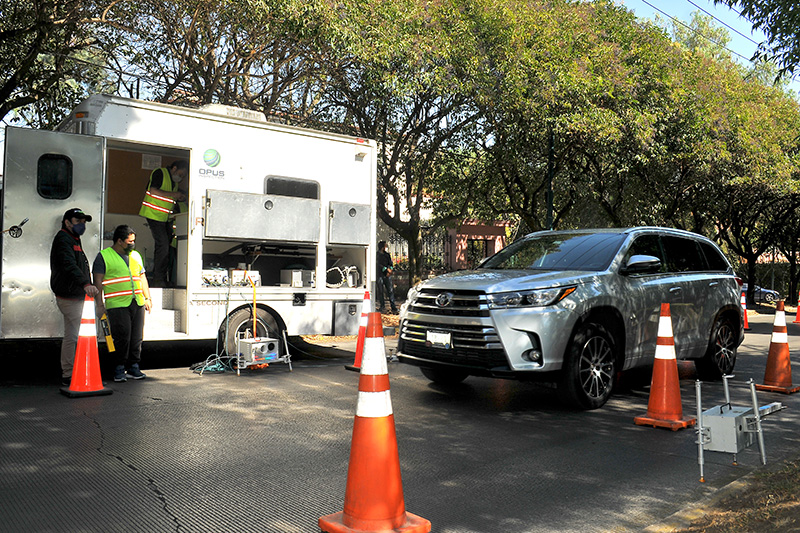São Paulo real-world emissions study calls for national and city action to restrict dirty vehicles

(São Paulo, Brazil) November 6, 2025 — São Paulo and other Brazilian cities should phase out their oldest vehicles and adopt progressive policies to address high air pollution says a new report by The Real Urban Emissions (TRUE) Initiative.
Emissions from the city’s seven million road vehicles are the largest contributor to air pollution in the São Paulo Metropolitan Area (SPMA), fueling a public health crisis. Nitrogen dioxide (NO2) and fine particulate matter (PM2.5) levels frequently exceed World Health Organization guidelines.
The study, conducted by TRUE in partnership with the State Environmental Agency of São Paulo (Companhia Ambiental do Estado de São Paulo; CETESB) and Traffic Engineering Company (Companhia de Engenharia de Tráfego; CET), included 323,000 vehicle emissions measurements collected from nine sites across the SPMA from May to July 2024. Remote sensing technology was used to measure carbon monoxide (CO), hydrocarbons (HC), ammonia (NH3), nitrogen oxides (NOx), ultraviolet smoke (a proxy for particulate matter), and evaporative emissions.
Key findings include:
- The oldest passenger cars, those over 18 years old, were the most serious high emitters, but made up less than 7% of the passenger car sample. Real world emissions of PROCONVE L3 standard gasoline passenger cars were emitting over 19 times the HC, four times the CO, and double the NOx limits established by the PROCONVE emissions standard.
- Diesel trucks introduced before the PROCONVE P3 standard accounted for nearly 10% of the sample and exhibited real-world NOx and PM emissions that were, respectively, over 5 and 12 times those of the newest trucks. However, even the newest trucks exhibited real-world emissions exceeding PROCONVE emission limits.
- High-use taxis and ride-hailing vehicles, which made up nearly 30% of the passenger sample, emitted twice as much HC, CO, and NOx as private cars.
- Urban cargo vehicles, largely responsible for last-mile deliveries, showed real-world NOx and PM emissions nearly 30% higher than regular, long-haul trucks.
- The worst emitting vehicle groups, private passenger cars using the Fiat 1L and Chevrolet 1.8L engines, certified to the PROCONVE L6 standards were, on average, emitting up to 3.4 times HC, 1.5 times CO, and 2.5 times NOx emission limits set by PROCONVE. Taxis and ride-hailing cars using these engines had significantly higher real-world emissions: over 12 times HC, 2 times CO, and almost 4 times NOx emission limits.
Policy recommendations include:
- Phasing out the oldest, most polluting vehicles that account for a minor vehicle share which would deliver disproportionate benefits as well as promoting electrification through scrappage and tax programs that provide financial incentives.
- Electrification of these high-use vehicle groups—taxis, ride-hailing vehicles, and urban cargo trucks—with high emission contributions could have an outsized effect on fleetwide emissions.
- Updating the PROCONVE program based on real-world emission performance.
- Implementing nationwide vehicle maintenance inspections to address persistent emissions from vehicles not registered in the SPMA, which represented around 35% of the vehicle sample.
New light-duty vehicles and heavy-duty vehicles are required to meet emission limits outlined in the L8 phase (from 2025 onwards) and the P8 phase (from 2023 onwards), respectively, under the PROCONVE program, which will need to continue development to further reduce fleet emissions. Environmental factors also play an important part in the city’s air quality challenges as ground-level ozone (O3) is exacerbated by strong sunlight and frequent high temperatures, a challenge in many other cities in Brazil and across the region.
The Environmental Company of the State of São Paulo (CETESB) is responsible for the control, inspection, monitoring, and licensing of pollution-generating activities, with the preservation of air quality among its key mandates.
Director of Environmental Quality at CETESB, Maria Helena Martins, said: “The metropolitan region of São Paulo has its air quality significantly influenced by vehicular emission sources. Despite the efforts made over the years to control emissions, new public policies are still needed to reduce the impact of the circulating vehicle fleet on air quality.
The TRUE study, carried out in partnership with the ICCT, facilitated a more accurate assessment of fleet emissions under real-world conditions. These results are important to support public authorities and society in prioritizing actions to reduce these emissions, as well as to understand the positive impacts we can expect from the implementation of control measures and the advancement of cleaner technologies.”
Marcel Martin, Brazil Managing Director at the International Council on Clean Transportation, TRUE’s technical partner, said: “This partnership is both strategic and highly relevant. The study’s results will provide valuable insights that, together with CETESB, will be used to develop effective actions to reduce emissions and improve air quality in São Paulo.”
Sheila Watson, Deputy Director of the FIA Foundation, TRUE partner, said: “This report shows the clear need to address the worst emitting fleets in São Paolo—the highest use vehicles and the very oldest—to address the city’s air quality crisis. It also shows national action is needed to monitor and improve the fleet with a strong push towards electrification, but also to address the environmental factors that have exacerbated São Paulo’s air quality crisis.”
About The Real Urban Emissions Initiative
The Real Urban Emissions (TRUE) Initiative supports cities worldwide to develop effective air quality and climate policies with independent real-world vehicle emissions data, technical analysis, and expert advice. The FIA Foundation and International Council on Clean Transportation established the TRUE Initiative.
Website | LinkedIn
About the International Council on Clean Transportation
The International Council on Clean Transportation (ICCT) is an independent research organization providing first-rate, unbiased research and technical and scientific analysis to environmental regulators. Our mission is to improve the environmental performance and energy efficiency of road, marine, and air transportation, in order to benefit public health and mitigate climate change. Founded in 2001, we are a nonprofit organization working under grants and contracts from private foundations and public institutions.
Website | Bluesky | LinkedIn | YouTube
About the FIA Foundation
The FIA Foundation is an independent UK registered charity which supports an international programme of activities promoting safe roads, clean air and climate action.
FIA Foundation | LinkedIn | YouTube



